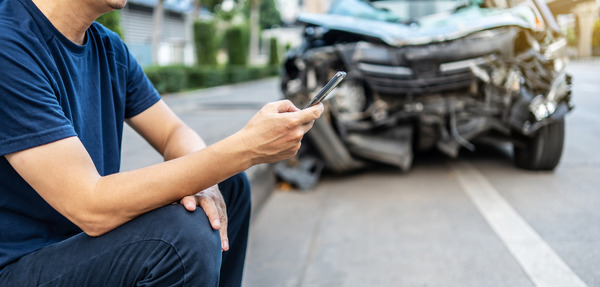A car accident can turn your life upside down in seconds, but knowing what to do after a car accident can make all the difference in safeguarding your health, rights, and future. At Fox Injury Law, our Tucker car accident lawyers are here to be your trusted guides through every step of this challenging time. Here’s a straightforward breakdown of the immediate actions you should take after a car accident in Tucker and insights into how state law protects you.
Step 1: Check for injuries and call emergency services
The priority after a car accident is to assess any injuries. If you or others involved are hurt, call 911 immediately. Even if injuries seem minor, prompt medical attention is essential for two main reasons:
- Hidden injuries: Many injuries, such as whiplash or internal trauma, might not present symptoms right away.
- Medical documentation: Immediate treatment creates a medical record of your injuries, which is valuable evidence in an insurance claim or lawsuit.
In Georgia, it’s legally required to report accidents with injuries, fatalities, or property damage exceeding $500 to local law enforcement or the Georgia State Patrol. A police report provides a third-party account of the accident, which can strengthen your claim in settlement negotiations or litigation with the insurance company.
Step 2: Move to a safe location if possible
If your vehicle is still operational and you’re not seriously injured, try to move your car to a safe area, such as the shoulder of the road, to avoid further collisions. Turn on your hazard lights and, if you have one, place a reflective triangle behind your car.
This simple action keeps you and other drivers safe and shows you’re following Georgia’s road safety protocols, which may be helpful if you file a claim.
Step 3: Document the scene thoroughly
In the moments following the accident, take a few minutes to collect key details, as they could significantly impact your case. Here’s what to document:
- Photographs: Take photos of the damage to all vehicles involved, the accident scene, skid marks, traffic signs, and any visible injuries.
- Exchange information: Collect the names, contact details, driver’s license numbers, and insurance information of all parties involved.
- Witness contacts: If there are witnesses, get their names and contact information as their testimony can support your version of events.
- Police report details: Note the responding officer’s name, badge number, and report number for future reference.
This evidence will help you reconstruct the accident and provide strong support if the other driver disputes your claim.
Step 4: Seek medical evaluation
Even if you don’t think you’re injured, getting a full medical evaluation within 24-48 hours is best. Some injuries, like soft tissue damage, internal bleeding, or concussions, may not be immediately apparent but can have lasting effects if left untreated. A medical report from your doctor can help establish the link between the accident and your injuries, a key factor in personal injury cases.
Step 5: Notify your insurance company
Most car insurance policies require informing your insurer about an accident within a certain timeframe. When speaking to your insurance company, stick to the facts and avoid making statements that could be interpreted as admitting fault. It’s best to avoid a detailed discussion of your injuries or accident specifics until you consult a personal injury attorney.
Step 6: Contact an experienced personal injury attorney
An attorney is your best advocate in navigating what to do after a car accident. At Fox Injury Law, we have the experience to guide you through Georgia’s legal landscape and help you recover the compensation you deserve. Here’s how we can assist:
- Evidence collection and investigation: We’ll gather police reports, medical records, and eyewitness accounts to build a strong case.
- Communication with insurers: Insurance companies often attempt to minimize payouts. We’ll handle negotiations to pursue maximum compensation for your losses.
- Legal strategy and advocacy: Whether settling or litigating, our team will craft a strategy that ensures your best interests are represented.
Step 7: Keep records of expenses and recovery
To support your case and ensure fair compensation, maintain detailed records of all accident-related expenses, including:
- Medical costs: Bills, prescriptions, and therapy costs.
- Lost income: Documentation of missed workdays and reduced earning capacity if you cannot perform your usual job duties.
- Property damage: Costs associated with repairing or replacing your vehicle and any other damaged property.
- Pain and suffering: Journaling your recovery experience, including physical pain, emotional distress, and changes in daily life, can provide insight into your non-economic damages.
Georgia’s comparative negligence rule
Georgia follows a “modified comparative negligence” rule, meaning your compensation may be reduced if you’re partially at fault for the accident. However, you may still recover damages if you’re found less than 50% at fault. Working with Fox Injury Law helps ensure you’re not unfairly assigned a higher percentage of fault, which could reduce or eliminate your compensation.
Why Fox Injury Law?
Car accidents are life-altering events, and knowing what to do after a car accident can make a significant difference in your recovery. At Fox Injury Law, we’re committed to advocating for your right to full and fair compensation handling the legal complexities so you can focus on healing. If you’ve been in a car accident in Georgia, contact us today to discuss how we can help you take the first step toward recovery.


